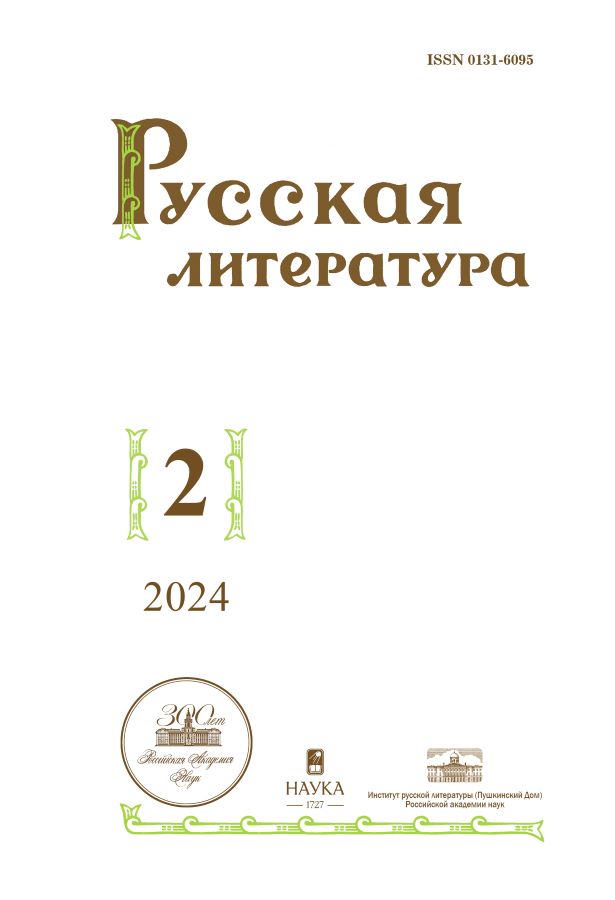«Literature that Teaches how to Escape from Prison»: Doctors in the Prose of A. P. Chekhov of the 1890s
- Authors: Kibalnik S.A.1
-
Affiliations:
- Institute of Russian Literature (Pushkinskij Dom), Russian Academy of Sciences
- Issue: No 2 (2024)
- Pages: 148-156
- Section: Публикации и сообщения
- URL: https://rjeid.com/0131-6095/article/view/672428
- DOI: https://doi.org/10.31860/0131-6095-2024-2-148-156
- ID: 672428
Cite item
Abstract
In his lifetime, A. P. Chekhov was often reproached by the critics for his pessimism, and yet they were lauding him as «the Russian Maupassant». While borrowing certain techniques and motives of the French writer, Chekhov seemed to have started an undercover polemics with him in the mid-1890s. This occurs in Chekhov’s novella A Woman’s Kingdom (1894), in which the principal character praises Maupassant’s novel Our Heart and his work in general. In addition, A Woman’s Kingdom is a variation on the theme of Maupassant’s novel Life. Yet Chekhov’s character believes that the French writer’s work, same as «all the new literature», is a proof of the death of Human in the modern world. Still, this novella by Chekhov, as well as his 1898 stories A Medical Case and On Official Duty, seems to offer the ways to save the Human.
Full Text
About the authors
Sergey A. Kibalnik
Institute of Russian Literature (Pushkinskij Dom), Russian Academy of Sciences
Author for correspondence.
Email: kibalnik007@mail.ru
ORCID iD: 0000-0002-5937-5339
Leading Researcher
Russian Federation, St. PetersburgReferences
- Andreev L. Tri sestry // Leonid Andreev. Izbrannoe. M., 2007.
- Chekhov A. P. Poln. sobr. soch. i pisem: V 30 t. Soch.: V 18 t. M., 1985. T. 7, 8, 10.
- Kibal’nik S. A. Chekhov i bakhtinskaia traditsiia interpretatsii ego tvorchestva // Novyi filologicheskii zhurnal. 2024. № 4 (v pechati).
- Kibal’nik S. A. Doktor Dorn protiv pisatelia Mopassana // Filologicheskie nauki. 2022. № 1.
- Kibal’nik S. A. Khudozhestvennaia fenomenologiia Chekhova // Kibal’nik S. A. Chekhov i problemy interteksta: Stat’i, publikatsii, zametki. SPb., 2013.
- Kubasov A. V. Fridrikh Nitsshe v russkoi proze kontsa XIX veka: ironiki i adepty (A. P. Chekhov i P. D. Boborykin) // Ural’skii filologicheskii vestnik. Ser. Russkaia klassika: dinamika khudozhestvennykh sistem. 2015. № 3.
- Kuprin A. I. Sobr. soch.: V 5 t. M., 1982. T. 1.
- Serebrov-Tikhonov A. O Chekhove // A. P. Chekhov v vospominaniiakh sovremennikov. M., 1986.
- Shestov L. Tvorchestvo iz nichego (A. P. Chekhov) // A. P. Chekhov: Pro et contra. Tvorchestvo A. P. Chekhova v russkoi mysli kontsa XIX — nachala XX v. (1887–1914): Antologiia. SPb., 2002.
- Slovar’ terminov moskovskoi kontseptual’noi shkoly / Sost., predislovie A. Monastyrskogo. M., 1999.
- Stanislavskii K. S. A. P. Chekhov v Khudozhestvennom teatre (Vospominaniia) // A. P. Chekhov v vospominaniiakh sovremennikov. M., 1986.
- Tolstaia E. Poetika razdrazheniia: Chekhov v kontse 1880-kh — nachale 1890-kh godov. M., 2002.
Supplementary files










